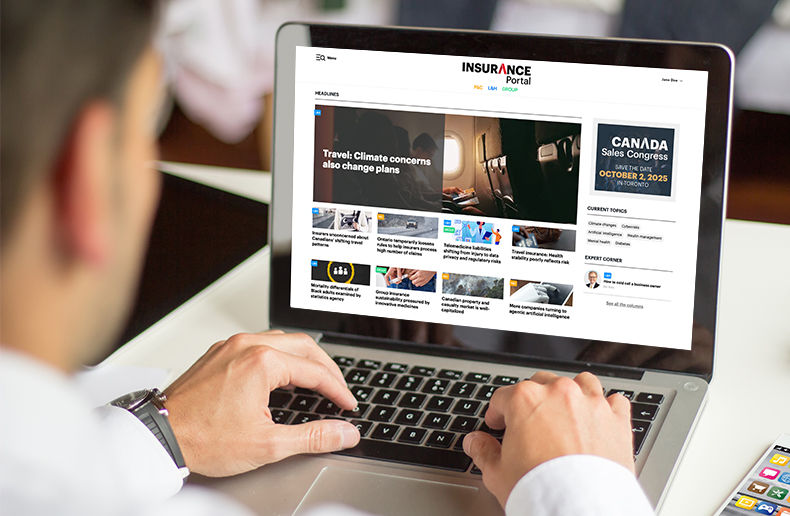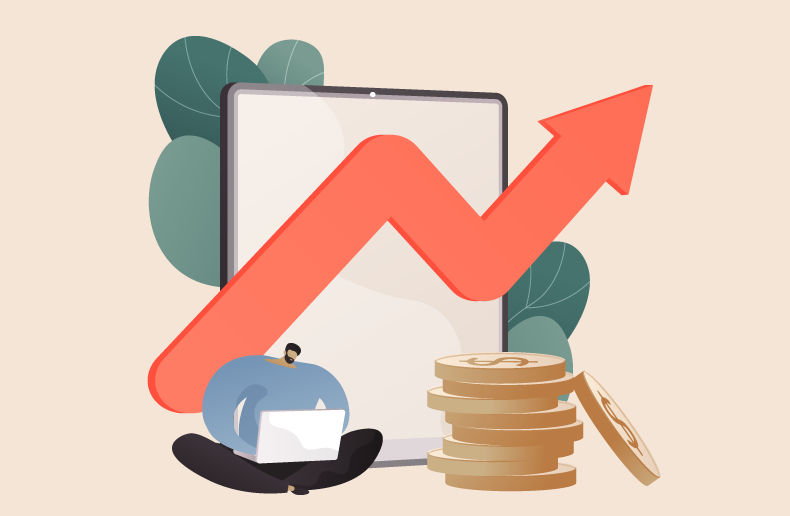
Centre of Expertise Global-Watch, an international intelligence and advisory service organization specializing in corporate health and well-being practices, highlighted nine international trends that stand out this year, at its annual Global-Watch 2025 International Trends event, broadcast via webinar on March 20, 2025. The Insurance Portal attended.
Global-Watch is dedicated to improving mental health and well-being in the workplace. Thanks to the employers who subscribe to its services, the organization claims to reach 1.5 million employees in 50 countries. Through weekly monitoring, contacts with experts and scientists, and exchanges with its network of employers, it annually identifies the international trends that will shape the workplace.
“International trends are evolving, but the mental health trend is unfortunately here to stay,” commented Marie-Claude Pelletier, President and Founder of Global-Watch, as she presented the first of nine trends. She points out that this trend will remain at the top of organizations' priorities in 2025, as mental health deteriorates within organizations.
Acute systemic context
Pelletier set the stage for the presentation of the trends by citing “the acute systemic context in which we currently find ourselves.” In her view, this context has an impact on all the trends identified by her organization. She emphasized the impact on well-being of a “societal context” marked by “multi-crises that are becoming permanent (permacrises), climate catastrophes and the extremely rapid integration of artificial intelligence into our ways of working.”
She also mentions the effect of geopolitical, economic and trade wars. “With the current trade war, the job market is likely to change a lot. We're on shaky ground. The gains we've made will shift,” she predicts.
It's as if we'd lost our foundations - Marie-Claude Pelletier
These events have an effect on employees, managers and companies' ability to perform that she compares to tectonic plates colliding. “It's as if we've lost our foundations. We have to act with great agility and resilience to adapt.”
Pressed by the imperative of profitability, some companies tend to neglect mental health issues by reducing the budgets allocated to them, “when it's precisely the opposite that needs to be done,” contends Pelletier.
She cited a report produced by the McKinsey Health Institute in collaboration with the World Economic Forum and published in January 2025 entitled Thriving workplaces: How employers can improve productivity and change lives. It concludes that additional investment in workers' health and well-being could boost global gross domestic product by between 4% and 12%, representing gains of between US$1,100 and US$3,500 per person.
Anxiety levels and workload
Anxiety levels rise with increased levels of distress in different employee groups and sub-groups, for example among Generation Z and women, Global-Watch noted. “Women are still too often in situations of harassment, violence and discrimination that cause a great deal of stress and distress,” says Pelletier.
Anxiety levels also remain high among middle-management employees who work in what Pelletier calls a “sandwich role”.
“Workload is a pervasive issue in the organization,” she says, pointing out that these managers have to rethink the way they operate within a group, responding quickly to more demanding and constantly changing business imperatives. Pelletier adds that the company's executives are also faced with this instability.
Regulatory obligations
Companies will need to have on their radar the regulatory obligations to detect psychosocial risks in the workplace and set up a prevention plan. “Europe has had this obligation for several years, but it's very recent in Quebec. Prevention plans will have to be developed by October 2025. That's tomorrow morning!
In force since Jan. 1, 2024, employers operating in Quebec must include work-related psychosocial risks in their prevention process. They are expected to build a prevention program, or action plan. Audits will begin Oct. 6, 2025. This is part of Bill 27: An Act to modernize the occupational health and safety system, from the CNESST (Commission for Standards, Equity, Health and Safety at Work).
Marie-Claude Pelletier also observes that organizations are making great efforts to destigmatize mental health problems in the workplace, and to equip managers to help them detect vulnerabilities.
Resilience will be a key word in 2025 - Marie-Claude Pelletier
Pelletier suggests awareness-raising and training initiatives to develop resilience capabilities. “Resilience will be a key word in 2025.”
She also sees the customization of mental health care through prevention and support based on the use of artificial intelligence, for both employees and managers.
Financial well-being

Among other aspects of corporate mental health, Étienne Fouquet, Global-Watch's Content and Knowledge Transfer Lead, spoke about financial well-being. Fouquet says he considers financial health to be the topic of the moment. He points out that since the 2008 financial crisis, much research has focused on the concrete financial issues that affect financial health in the workplace, including personal finances.
Fouquet observes that research is increasingly focusing on what lies behind these issues. “What emerges from all this is the perception of one's own financial capacity, which is much more subjective.” He explains that organizations have begun to take socio-economic factors into account to better tailor their support. For example, they will personalize their tools according to the age, life stage (having children, approaching retirement) or gender of the person.
Meaning and commitment at work
In presenting this other trend, Global-Watch wanted to emphasize the need to ensure coherence and recreate a strong collaborative spirit in the workplace, to better innovate and perform. Meaning and commitment are the key factors, Pelletier says.
She adds that she is seeing more and more disengagement on social networks. “We're seeing a rise in “conscious onbossing”, people who don't want to have management positions or work more, who want to slow down or limit their working hours. It's a sign of disengagement or change fatigue,” she notes.
Global-Watch also highlighted the devastation that loneliness at work can cause. “People died of loneliness during the (COVID-19) pandemic,” recalls Pelletier. “Loneliness has become a business risk, not just a workplace wellness challenge.”
According to Global-Watch, loneliness at work is associated with a 35% drop in work performance and a 34% drop in job satisfaction. It also increases the risk of burnout by 39%. Pelletier cited the results of a Global-Watch survey conducted by Léger, according to which one worker in five feels lonely. A situation that can also arise in face-to-face work, even more so among 18-34 year-olds.
Pelletier highlighted the issue of loneliness in the workplace as a panelist at the Congrès Collectif 2025, held in Montreal on Feb. 27. This annual event is dedicated to group insurance advisors and organized by Insurance Journal Publishing Group. Replays of the sessions (in French) are available until April 23, 2025. The panel in which Pelletier participated was entitled Détérioration en santé mentale : quel est le rôle du conseiller ? Comment préparer les preneurs ? Also taking part were Christine Grou, President of the Ordre des psychologues du Québec, and Martin Binette, Vice-President, Development and Growth at inpowr.
The following table gives an overview of the nine trends observed by Global-Watch for the year 2025, along with a list of related issues.







